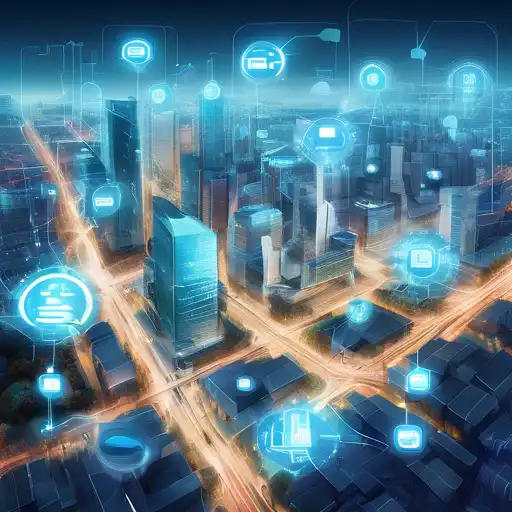Introduction to IoT in Smart Cities
The Internet of Things (IoT) is revolutionizing the way we live, work, and interact with our urban environments. By embedding sensors and network connectivity into physical devices, IoT enables cities to become smarter, more efficient, and more responsive to the needs of their citizens. This article explores the pivotal role of IoT in the development of smart cities, highlighting its benefits, challenges, and future potential.
Key Benefits of IoT in Smart Cities
IoT technology offers numerous advantages for urban areas, including:
- Enhanced Efficiency: IoT devices optimize resource use, reducing waste and lowering operational costs for city services.
- Improved Public Safety: Smart surveillance and emergency response systems enhance security and reduce crime rates.
- Environmental Sustainability: IoT contributes to greener cities by monitoring air quality and managing energy consumption.
- Better Transportation: Smart traffic management systems reduce congestion and improve public transit efficiency.
Challenges Facing IoT Implementation
Despite its benefits, the integration of IoT into smart cities is not without challenges. These include:
- Privacy Concerns: The collection of vast amounts of data raises questions about citizen privacy and data security.
- High Costs: The initial investment for IoT infrastructure can be prohibitive for some cities.
- Technical Issues: Interoperability between different devices and systems remains a significant hurdle.
Future Prospects of IoT in Urban Development
The future of IoT in smart cities looks promising, with advancements in technology paving the way for more innovative applications. From autonomous vehicles to smart grids, the potential for IoT to transform urban living is immense. As cities continue to grow, the adoption of IoT solutions will be critical in addressing the challenges of urbanization and ensuring sustainable development.
Conclusion
The role of IoT in smart cities is undeniably transformative, offering solutions to some of the most pressing urban challenges. While obstacles remain, the continued evolution of IoT technology promises to make our cities more livable, efficient, and sustainable. For those interested in the intersection of technology and urban planning, the journey of IoT in smart cities is one to watch closely.
